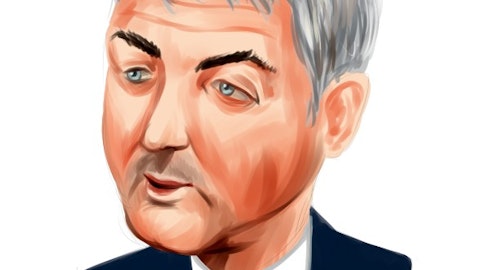Investors who look for turnarounds want to get in on the ground floor of a beaten-down business getting itself back on strong financial footing.
There’s no better examples of this than Best Buy Co., Inc. (NYSE:BBY), J.C. Penney Company, Inc. (NYSE:JCP), and Pitney Bowes Inc. (NYSE:PBI) –each has seen their stocks rise after long and painful downturns.
It’s reasonable to be a little skeptical that Best Buy Co., Inc. (NYSE:BBY), J.C. Penney Company, Inc. (NYSE:JCP), and Pitney Bowes Inc. (NYSE:PBI) would truly be on the road to recovery. Until recently, their stocks had been in free-fall. So should these turnarounds be believed? Or, in any of these cases, would investors be wise to stay on the sidelines?

Twin retail turnarounds
To say that the past few years have been volatile for Best Buy Co., Inc. (NYSE:BBY) would be an understatement. Shares were selling for $45 per share in late 2011, only to collapse to $12 per share one year later.
Best Buy Co., Inc. (NYSE:BBY)’s wildly-swinging share price is indicative of the tug-of-war between its supporters and its critics. Best Buy bulls have faith in the company’s strong brand and its ability to generate positive free cash flow, while bears point to the troubling ‘show-rooming’ effect and the looming threat of larger online competitors.
Best Buy Co., Inc. (NYSE:BBY) reported a $1.2 billion net loss in fiscal 2012, due largely to the fact that it reported a 1.7% decline in comparable-store sales, which measures sales only at locations open at least one year. Going back further, it’s worth noting that Best Buy has posted same-store sales declines in fiscal years 2012, 2011, and 2009.
Fast forward to today, and Best Buy is in full-rally mode after reporting second-quarter results. All told, the company notched a 0.6% drop in comparable-store sales in the quarter. In addition, Best Buy’s diluted earnings per share rose 8% during the first half of the year. Shares rose as much as 10% after releasing earnings.
J.C. Penney Company, Inc. (NYSE:JCP), meanwhile, is under fire after the widely publicized departure of Chief Executive Officer Ron Johnson. J.C. Penney’s business has deteriorated over the past year, largely the result of initiatives that backfired, including the decision to eliminate discounts in favor of a regular low-pricing strategy. In all, J.C. Penney Company, Inc. (NYSE:JCP) booked a $985 million loss in 2012, and shares have lost roughly half their value over the past year.
That being said, investor hopes were buoyed when the company said the back to school shopping season was off to a promising start, and that sales trends had improved every month in the quarter.
Separately, it was revealed that noted hedge fund manager Kyle Bass, through his Hayman Capital fund, took a substantial long position in J.C. Penney Company, Inc. (NYSE:JCP). Shares bounced 6% on the news.
For its part, Pitney Bowes Inc. (NYSE:PBI) has been enjoying a solid uptrend since the beginning of the year. After releasing poor first-quarter results, in what has become a recurring problem for Pitney Bowes, the company slashed its dividend to shore up cash. Pitney Bowes has been working to reduce debt and improve its bloated balance sheet.
That may have represented the bottom for Pitney Bowes Inc. (NYSE:PBI) and its shareholders. Since then, the news has been better. Pitney Bowes reported second-quarter results that weren’t as bad as the market feared. The company reported flat revenue on a constant currency basis, which was far better than what most were expecting.
Pitney Bowes Inc. (NYSE:PBI) lost nearly half its value in 2012, but has soared from $11 per share to begin 2013 to its current level near $18 per share.



